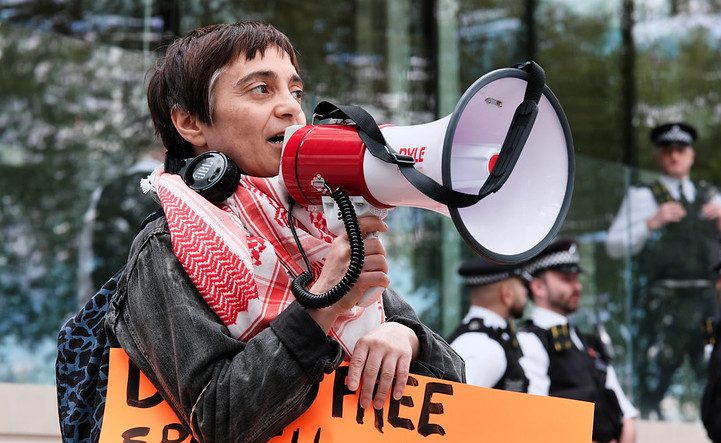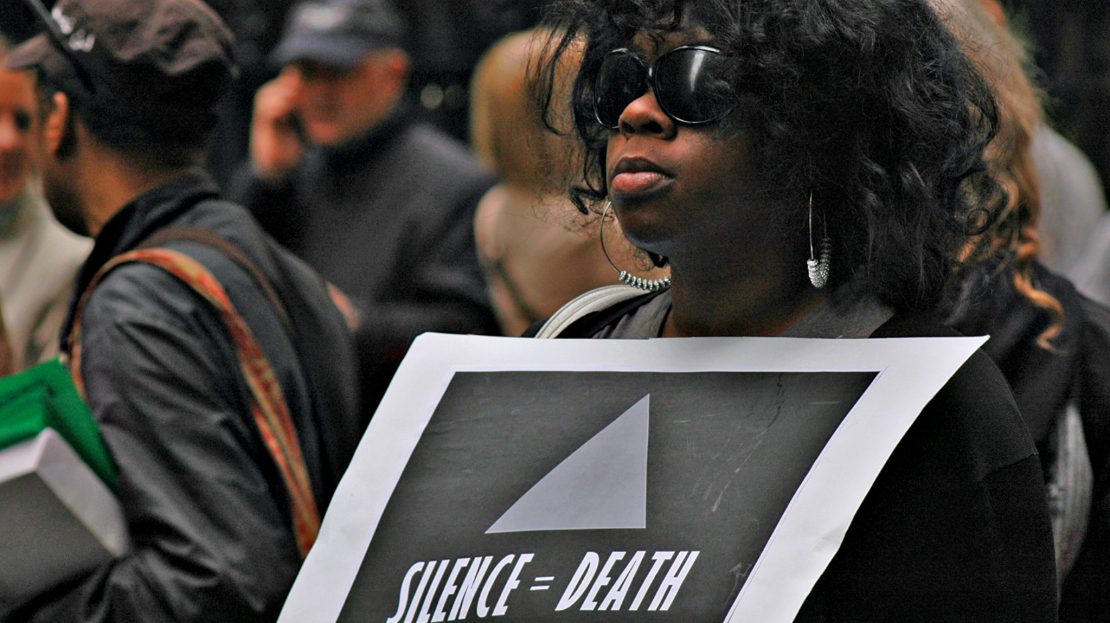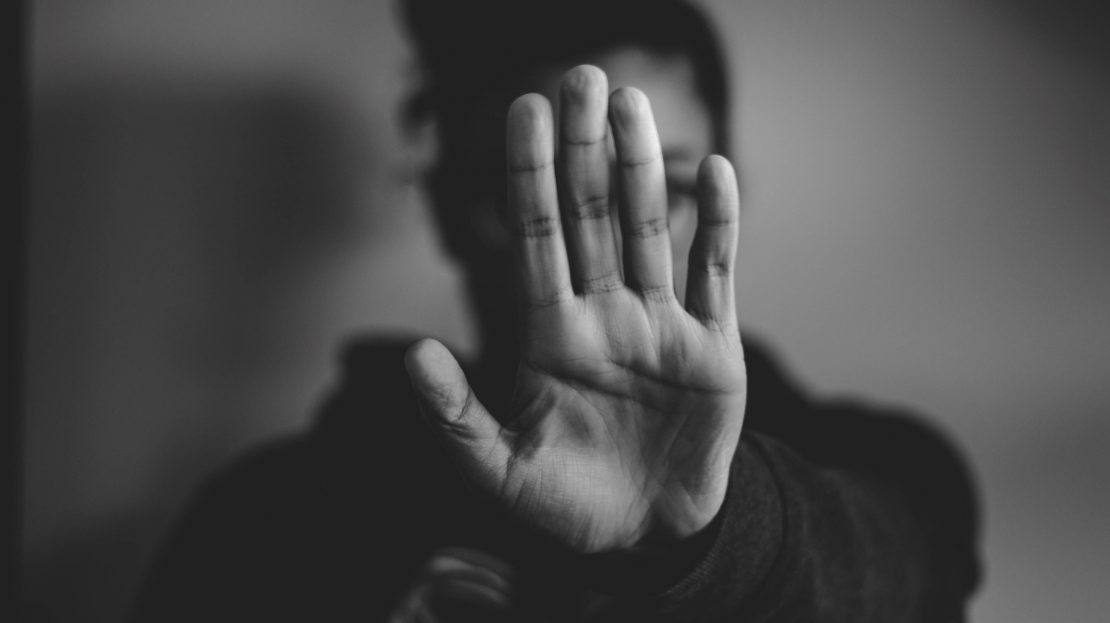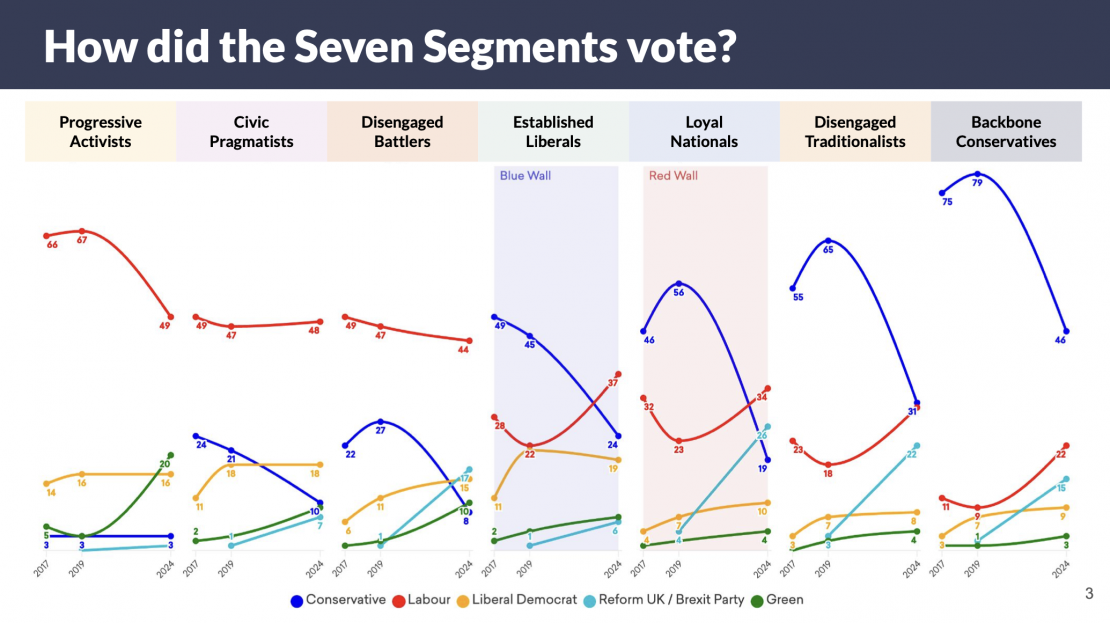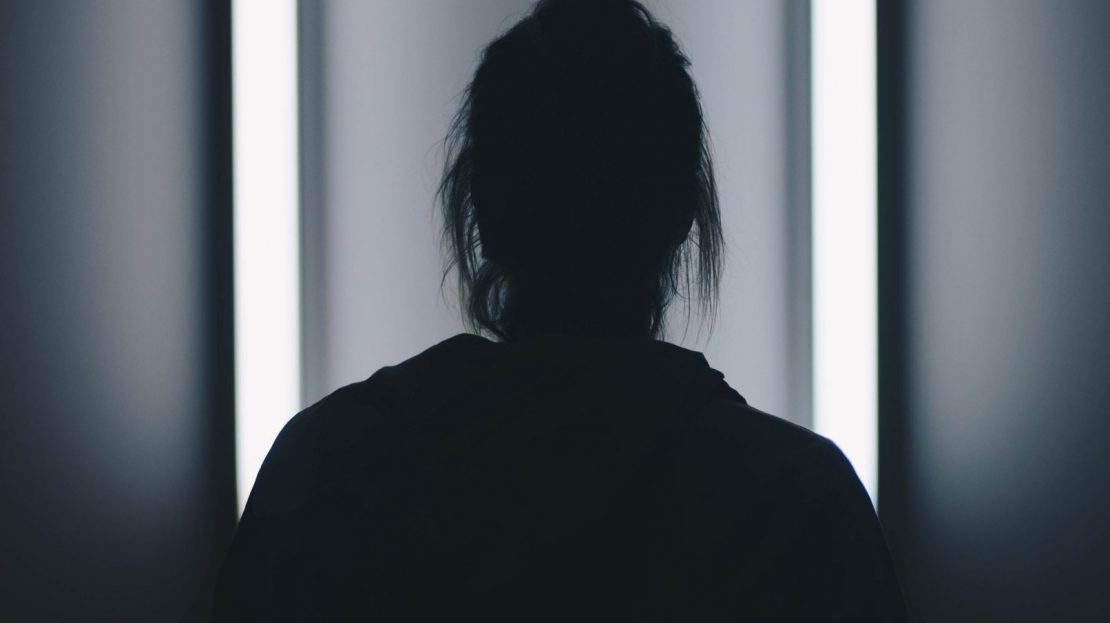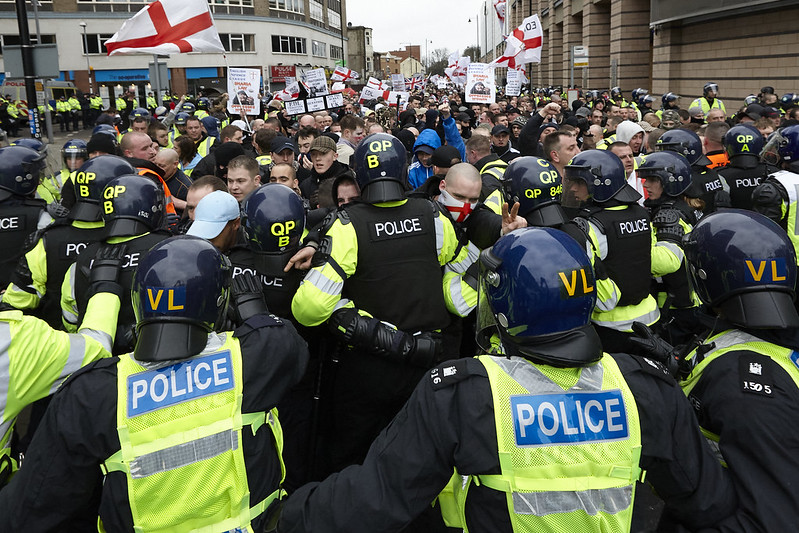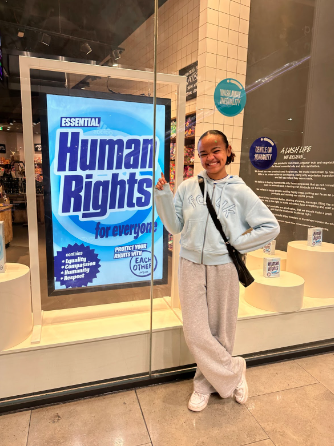In 2024, several human rights issues have emerged in the UK, ranging from concerns over the treatment of migrants and asylum seekers to issues related to freedom of expression, the right to protest, and police powers.
This year saw a continuation of threats posed to human rights in the UK, alongside threats to withdraw from the conventions that uphold and protect them. 2024 saw the previous Conservative government continue to propose withdrawing from the European Convention on Human Rights (ECHR), a move that sparked significant controversy and debate. The ECHR is an international treaty that was established in 1950 by the Council of Europe, designed to protect human rights across member states.
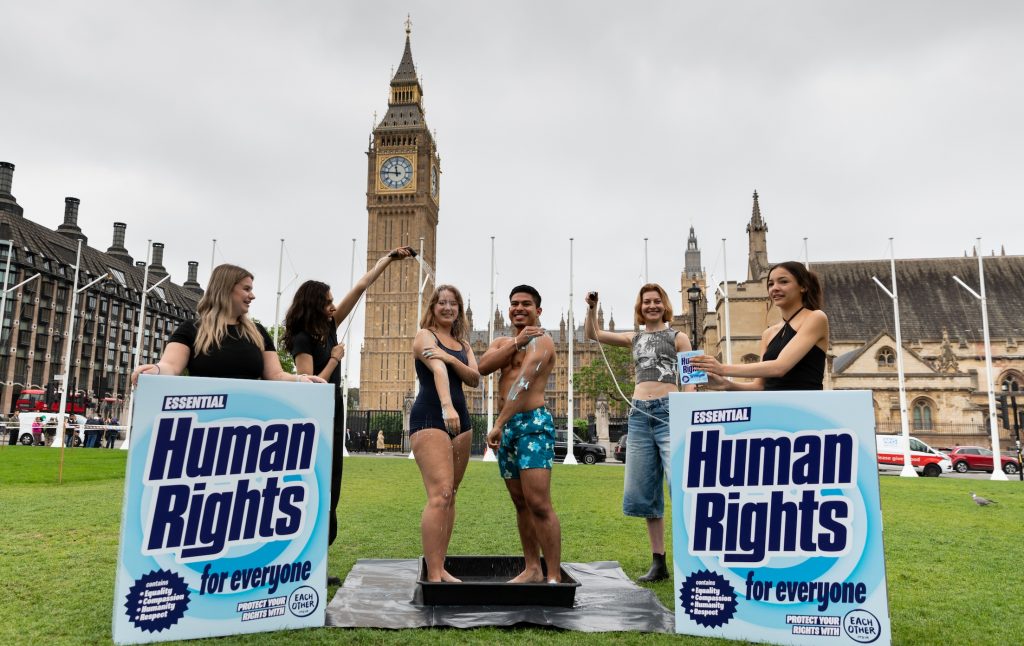
Credit: EachOther/LUSH: Campaign: “Don’t make human rights a dirty word”.
The UK government’s proposal to exit the ECHR was part of a broader strategy to overhaul the UK’s human rights framework and address certain legal challenges that the government viewed as problematic. The UK government’s proposal to withdraw from the ECHR stemmed from a growing frustration with certain rulings by the European Court of Human Rights (ECtHR), which is the judicial body overseeing the Convention. These rulings were seen by some in the government as limiting the UK’s ability to enforce its own domestic laws, especially in areas like immigration and deportations.
However, the announcement for a general election would put a stop to withdrawal proposals. Following the election on 4 July, the country elected prime minister Keir Starmer, who once in office, shelved the former governments’ proposal.
Detention Conditions and Deportations
There has been continued concern over the UK government’s treatment of asylum seekers, particularly regarding the use of detention centres. Reports of overcrowding, inadequate conditions, and lengthy detention periods have been raised by human rights organizations. The government’s use of deportation flights, especially to countries such as Rwanda under controversial agreements, has been heavily criticized by activists and legal experts for potentially violating international human rights standards.
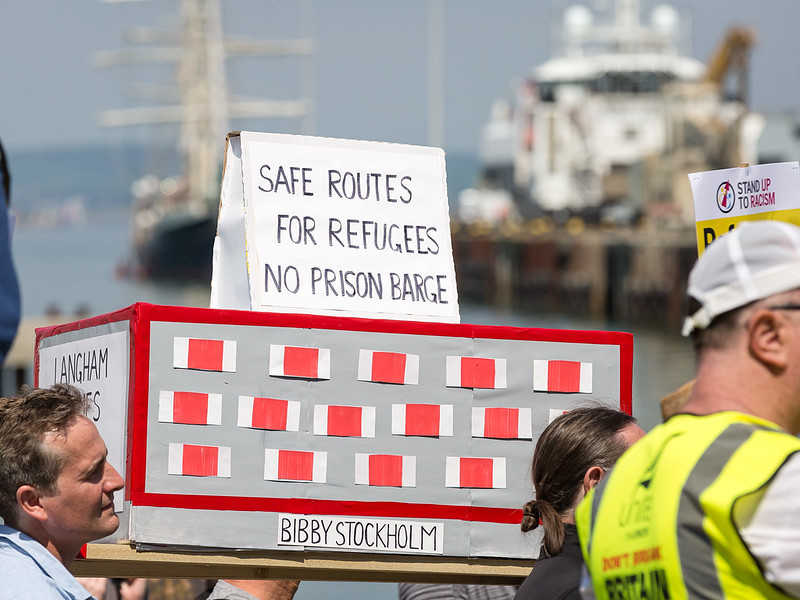
Credit: Stephen & Helen Jones
The UK’s stance on small boat crossings in the English Channel and its enforcement of the Nationality and Borders Act (2022) have raised alarms. Critics argue that the act violates the principle of non-refoulement (the prohibition of returning refugees to countries where they may face harm) and undermines international refugee protections. The UK’s handling of these cases, including the legal treatment of individuals arriving irregularly, has been a major point of contention.
Restrictions on Protest
In 2024, there were several high-profile protests across the UK, addressing a range of issues including climate change, workers’ rights, racial justice, LGBTQ+ rights, and political freedoms.
In response to ongoing disputes over pay and conditions, workers in public services—such as education, healthcare (NHS), and transport—held protests and strikes in 2024. Teachers, nurses, and railway workers were among those who took industrial action, calling for better wages, improved working conditions, and against cuts to public services.
The Police, Crime, Sentencing and Courts Act (2022) continued to be a contentious issue in 2024. The law has been criticized for infringing on the right to protest by granting the police greater powers to impose conditions on protests, arrest individuals, and shut down demonstrations deemed disruptive. Critics argue that the law infringes on fundamental freedoms of expression and assembly.
Despite tighter restrictions, communities and grassroots organisations joined together to express their freedom of speech. There were widespread protests against the UK government’s policies regarding immigration, particularly the controversial deportations to Rwanda under the Nationality and Borders Act.
Activists gathered outside the Home Office and Parliament to denounce what they saw as inhumane treatment of asylum seekers and migrants. Protests also took place in response to the government’s “small boat” crackdown and deportation flights.
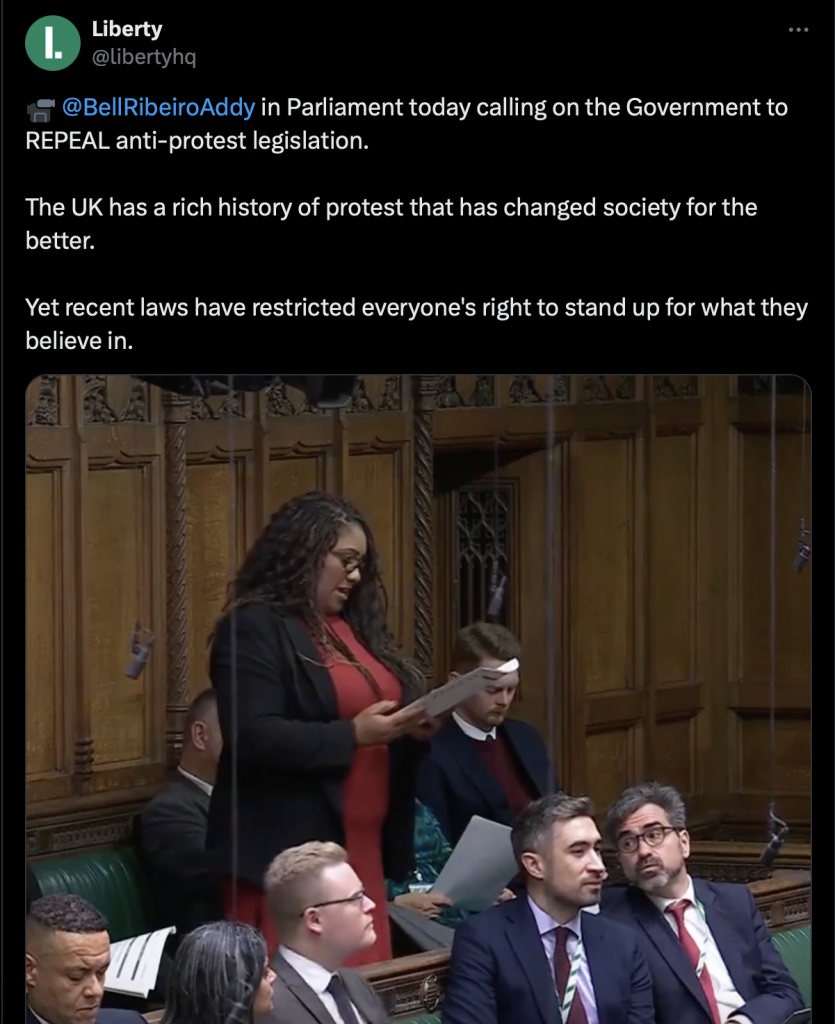
Credit: Liberty
Throughout the year, across cities like London, Birmingham and Manchester, several protests took place, calling for a ceasefire in Palestine. In January 2024, thousands of people gathered in central London for a rally organised by various groups, including the Palestine Solidarity Campaign. Protestors called for an end to airstrikes and placed pressure on the government to address the conflict.
Despite facing counter-protests and accusations of antisemitism from some, the majority of protests were peaceful and centered on issues of human rights, justice, and ending conflict and brought people from various communities across the country closer together.
Privacy & the Online Safety Bill
There has been ongoing debate about the balance between tackling hate speech and protecting freedom of expression. The Online Safety Act has raised concerns over the potential for increased censorship online, particularly the broad definitions of harmful content that could lead to disproportionate removals of legitimate speech.
The Online Safety Act aims to regulate harmful online content, has raised concerns regarding privacy and freedom of expression. Provisions within the bill could lead to increased monitoring of individuals’ online activities, with critics arguing that it might infringe on privacy rights.
There have been concerns about the use of surveillance technologies by law enforcement and private companies, particularly in the context of biometric data, facial recognition, and the growing use of artificial intelligence in policing. Critics argue that these measures could lead to violations of privacy and disproportionately impact marginalised communities.
Standing up for the rights of each other
Gender-based violence remains a serious issue, with continued reports of domestic abuse, sexual harassment, and violence against women. Despite some progress in tackling these issues, such as the introduction of the Domestic Abuse Act (2021), activists argue that more needs to be done to protect women from violence, ensure better support services, and hold perpetrators accountable.
Sexual harassment in workplaces, universities, and public spaces has been a growing concern, with some activists calling for stronger legal protections and workplace reforms. Gender inequality in terms of pay, career advancement, and representation in leadership positions also continues to be a significant issue.
Meanwhile, disability rights groups raised concerns about the adequacy of social services and benefits for disabled people, particularly with respect to cuts or freezes to disability-related benefits. There have been ongoing issues with the accessibility of public spaces, transportation, and housing for disabled individuals. Campaigners argue that these systemic issues often lead to economic and social exclusion.
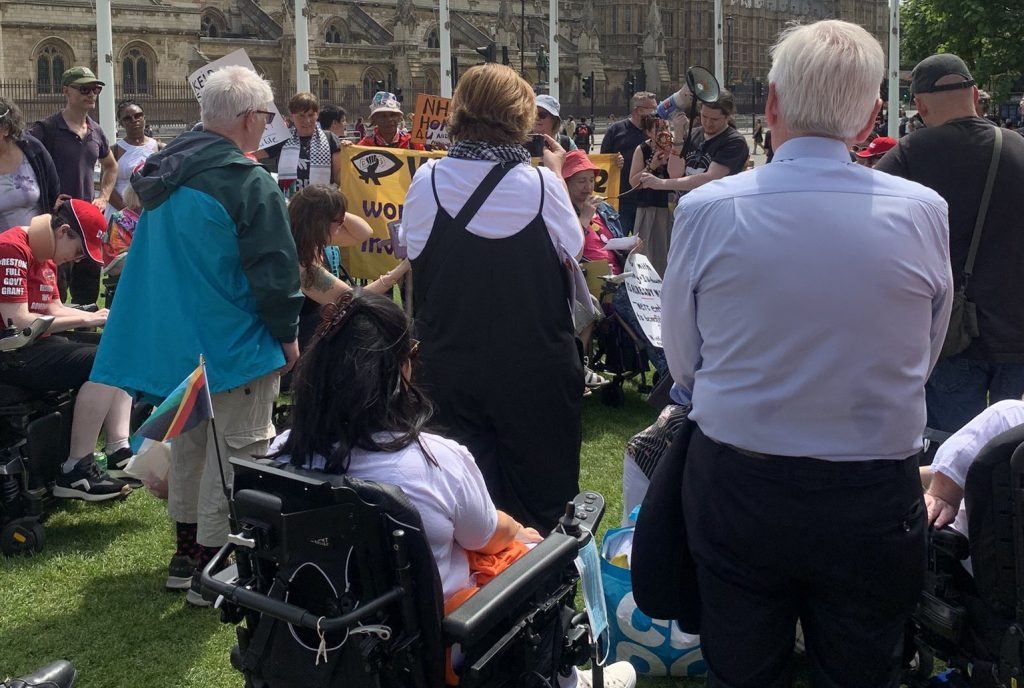
Credit: Disability Rights UK
This year saw the debate continue around the rights of LGBTQI+ people, specifically in regard to members of the trans community.
Throughout the year and across the nation, gender recognition and access to healthcare has remained a widely debated human rights issue in the UK. Activists have raised concerns over delays in accessing gender-affirming treatments, the closure of gender clinics, and legal challenges to the rights of transgender people.
Additionally, the government’s stance on banning conversion therapy, particularly with regard to trans people, has been a highly debated issue.
Right to Housing & Cost of living crisis
The ongoing cost of living crisis, exacerbated by rising food and energy prices, has led to increased poverty and economic insecurity for many people in the UK. This has impacted people’s rights to an adequate standard of living, including access to healthcare, housing, and other essential services. Vulnerable groups, including low-income families, disabled people, and migrants, have been disproportionately affected by these economic challenges.
Homelessness and the housing crisis have remained key human rights issues. The high cost of housing, coupled with a lack of affordable housing options, has led to rising levels of homelessness in major cities like London. The treatment of homeless people by law enforcement and local authorities, as well as the adequacy of support services, continues to be a significant area of concern.
These are just some of the key human rights challenges, communities across the UK has faced. Many of these issues are deeply intertwined with broader debates about political values, social justice, and the role of the state as well as communities protecting rights.

